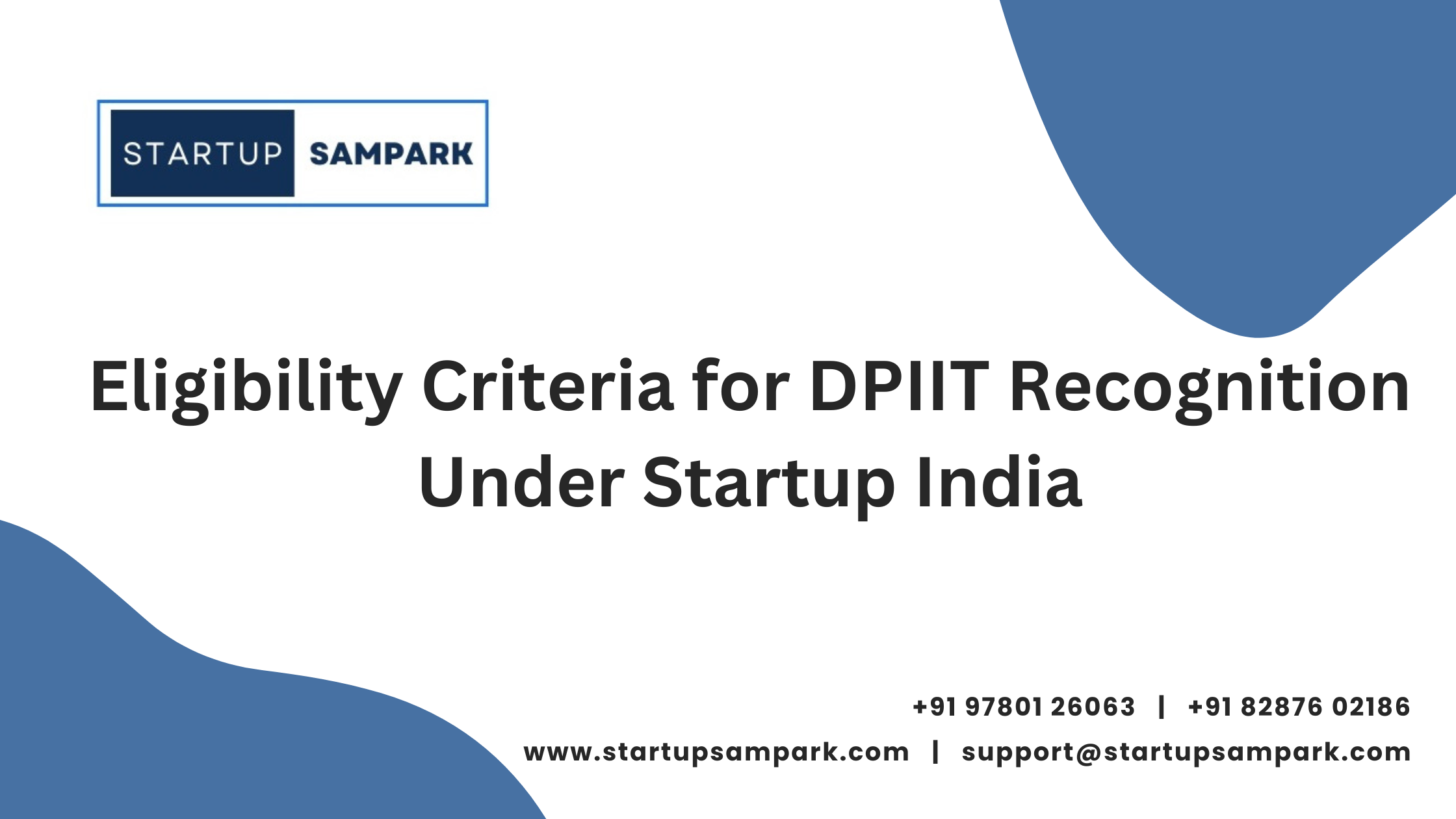Eligibility Criteria for DPIIT Recognition Under Startup India
Definition of a Startup
The Department for Promotion of Industry and Internal Trade (DPIIT) recognition under the Startup India initiative is granted to entities that qualify as startups under specific criteria. A startup, as defined by the government, is an entity incorporated or registered in India not prior to 10 years from the date of registration. It must be working towards innovation, development, or improvement of products, processes, or services, with a scalable business model that has a high potential for employment generation or wealth creation. This definition focuses on encouraging innovation and entrepreneurial growth, aligning with the country’s vision for a more dynamic economy.
Turnover Limitations
To qualify for DPIIT recognition, a startup must have an annual turnover of less than ₹100 crore for any financial year since its incorporation. This turnover limit ensures that only newer, emerging businesses are eligible for the recognition, which helps in distinguishing startups from well-established companies. The turnover restriction is designed to encourage small and medium-sized enterprises (SMEs) that are focused on growth, scalability, and innovation, with the goal of providing them access to various government benefits and schemes.
-
 Startup Registration (DPIIT Recognition)₹8,850.00
Startup Registration (DPIIT Recognition)₹8,850.00
Nature of Business
The business must be innovative and aimed at solving a problem, bringing in an advancement in a particular sector or a completely new industry. It could involve novel technologies, innovative products, or disruptive services that cater to the current market demands or create new market niches. The nature of the startup should align with areas that contribute to social and economic development, helping in resolving contemporary issues related to agriculture, healthcare, education, or other sectors.
Exclusivity and Independent Operations
For DPIIT recognition, the startup should not be formed by splitting up or reconstructing an existing business. This means that companies formed by merely restructuring or splitting an established business, such as a merger or division of a parent company, are not eligible for this recognition. The startup must operate independently and should not be a subsidiary of any larger or established company. This ensures that the startup is a distinct and innovative entity with original business ideas rather than an extension of an existing organization.
Innovation and Product Development
One of the critical criteria for DPIIT recognition is the emphasis on innovation. A startup must either be developing a new product, service, or technology, or must improve an existing product or service in a significant way. This includes new solutions to existing problems, novel ideas, or substantial improvements to traditional practices. Startups should demonstrate technological innovation, advanced methodologies, or business models that provide value to society, contributing to the ecosystem’s overall growth. The focus is on businesses that create value beyond conventional models, fostering entrepreneurship that leads to broad market impact.
Compliance with Environmental and Regulatory Standards
A startup must comply with all relevant regulations and environmental standards stipulated by government authorities. In addition to the legal and regulatory obligations, the startup must ensure that its operations and products do not violate any national or international laws, including intellectual property laws. Being compliant not only ensures the legitimacy of the business but also enhances the trust and credibility of the startup in the market, making it eligible for government incentives such as tax benefits, patent rights, and other schemes under Startup India. This ensures that startups not only foster innovation but do so in a responsible and sustainable manner.
Startup, India
-
 Startup Registration (DPIIT Recognition)₹8,850.00
Startup Registration (DPIIT Recognition)₹8,850.00















Post Comment